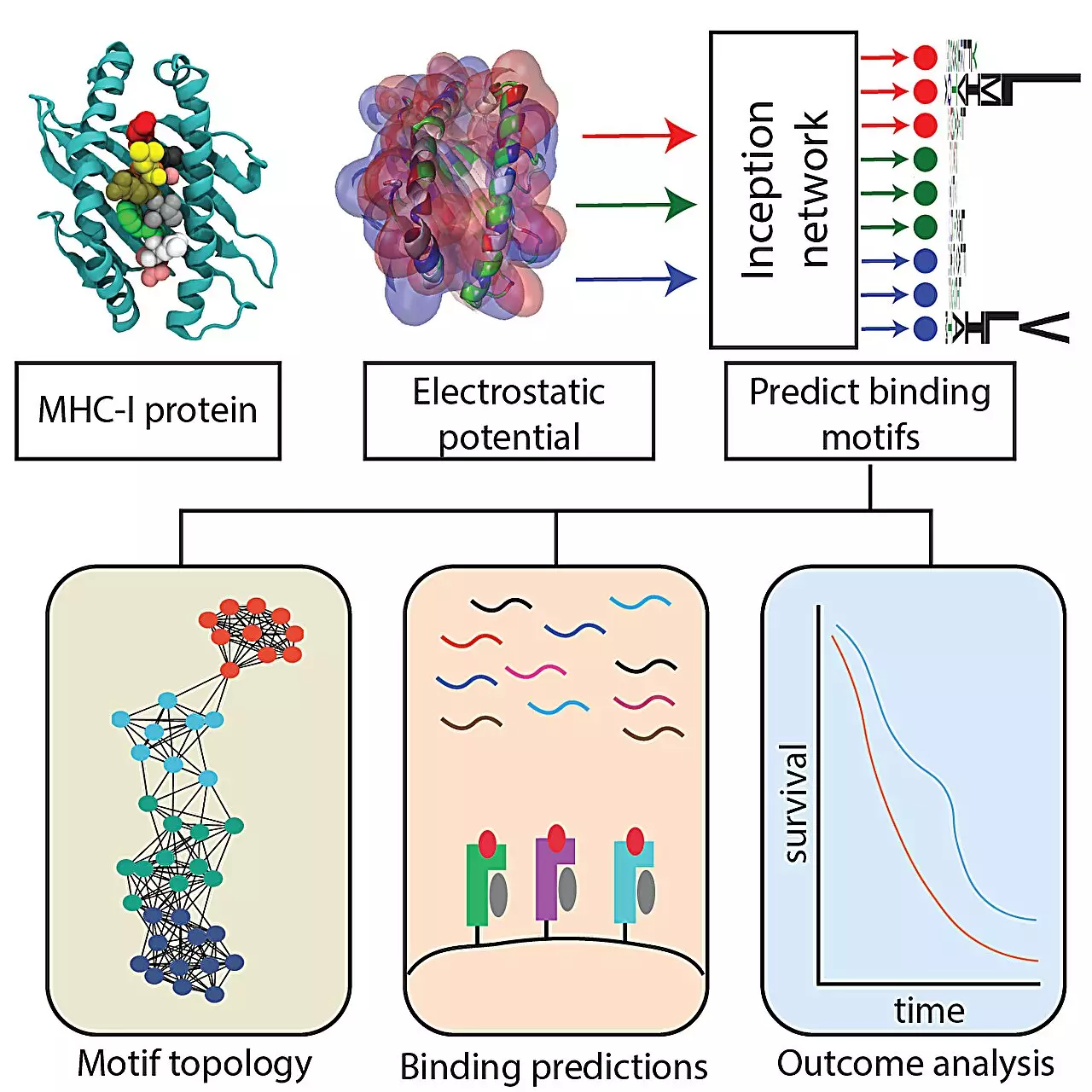In the realm of cancer research, scientists are constantly seeking innovative ways to enhance the effectiveness of treatments and improve patient outcomes. One such approach involves the use of artificial intelligence (AI) to unravel the complexities of the human immune system. A recent study led by researchers at Arizona State University introduced a groundbreaking AI-based learning tool known as HLA Inception. This tool has provided new insights into how an individual’s immune system responds to foreign cells, shedding light on potential breakthroughs in personalized cancer medicines.
HLA Inception focuses on a group of proteins called major histocompatibility complex-1 (MHC-1), which play a crucial role in alerting the immune system to foreign invaders within the body. By analyzing the unique molecular details of an individual’s MHC-1 proteins, the tool can predict how the immune defenses may recognize and respond to threatening viruses and cancers. This personalized approach allows for more accurate predictions of patients’ responses to specific cancer treatments, ultimately paving the way for tailored and effective therapies.
One of the key challenges in predicting immune responses lies in the vast diversity of MHC-1 molecules across the human population. With thousands of different versions of these proteins, creating a universal prediction model can be a daunting task. However, the research team behind HLA Inception analyzed nearly 6,000 MHC-1 complexes and identified patterns that can classify these proteins into 11 distinct types. By leveraging AI and machine learning, the tool uses electrostatic signatures on the surface of the proteins to determine which peptides are self or foreign invaders, providing valuable insights for understanding immune mechanisms and developing advanced cancer vaccines.
The implications of this research extend beyond scientific discovery to tangible impacts on patient care. Patients with a diverse range of MHC-1 proteins, spanning multiple classes identified by HLA Inception, have been shown to have a higher likelihood of surviving certain cancer therapies. This personalized approach to treatment not only improves patient outcomes but also reduces the need for costly and time-consuming experiments to determine treatment eligibility. The integration of machine learning and AI in healthcare holds the potential to revolutionize the accessibility and effectiveness of cancer therapies for a broader range of patients.
By making HLA Inception available for academic use, the researchers aim to foster collaboration and innovation in the field of immunotherapy. This open-access approach to cutting-edge technology sets the stage for the development of more targeted and effective cancer therapeutic vaccines and immunotherapies. Dr. Karen Anderson, a co-author on the paper, envisions a future where next-generation immunotherapies are tailored to an individual’s specific MHC molecules, representing the pinnacle of precision medicine. The impact of this research extends far beyond academia, signaling a new era in personalized cancer treatment strategies.
From uncovering individualized molecular interactions to revolutionizing cancer treatment paradigms, AI-based learning tools like HLA Inception are poised to shape the future of personalized medicine. As researchers continue to harness the power of AI and machine learning in healthcare, the potential for tailored and effective cancer therapies becomes increasingly within reach. The collaboration between academia, healthcare providers, and technology experts is paving the way for a new era of precision medicine, where each patient’s unique immune profile can guide personalized treatment strategies.

